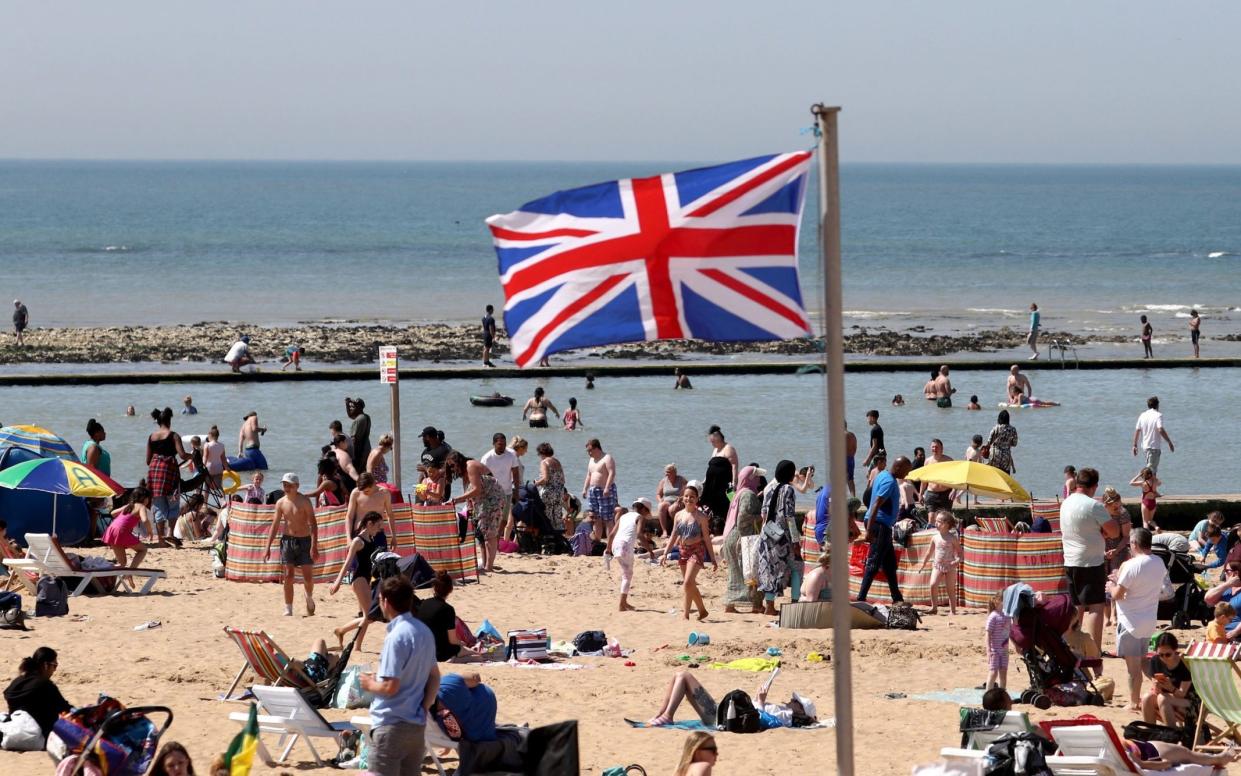R rate back above one across UK with daily cases highest since March

The R rate is back above one across the UK, with daily cases at their highest since March 22, the latest figures reveal.
Tracking by the King’s College London app shows the virus is advancing in all but three parts of the country for which estimates are available.
It comes as the Government announced 5,274 new positive cases reported over the latest 24-hour period.
Cases rose 22 per cent in the week to May 26, according to NHS Test and Trace.
On average, one in 1,090 people in the UK now have symptomatic infection, according to the King’s study, considered the most accurate projection of current cases.
Latest statistics from the study showed 10 times more cases in those aged 40 and under, compared with the over 60s, with just 14 cases per 100,000 in older people, compared with around 140 per 100,000 among those in their 30s and 160 among those in their 20s.
The King’s study predicts that the R value is currently lower than one – meaning the virus is in retreat – only in Wales, the East of England and Yorkshire and the Humber.
Meanwhile, Covid appears to be growing fastest in South East England, London and the East Midlands.
Professor Tim Spector, who leads the study, said: “The UK picture is changing quickly now.
“Cases are rising, but not nationwide, it’s very much a regional issue.
“The North West of England and Scotland are the two regions with the highest prevalence, with rates higher than in some parts of Europe.
“However, the data highlights that the increase is happening in the younger age groups, suggesting the start of an epidemic in the young.”
Watch: Will the full easing of restrictions in England go ahead on June 21?
The new data fueled further calls for Boris Johnson to delay the full lifting of restrictions scheduled for June 21.
On Thursday night the NHS Confederation, which represents organisations across the healthcare sector, became the latest voice suggesting that the planned reopening be delayed, pointing out that around half of the adult population has yet to receive two vaccine doses.
However, independent scientists argued that the situation is less alarming than it looks because the majority of vulnerable people have been vaccinated.
Dr Simon Clarke, associate professor in cellular microbiology at the University of Reading, said: “The latest statistics show that while rates of infection are once again rising in the young, the link to infection rates in more vulnerable older people seems to be broken.
“This would seem to add to existing evidence that vaccines are working at stopping the spread of Covid-19.”
But he added: “The fact that around half of all outbreaks in England were linked to schools or other education settings shows just how quickly the virus can spread in unvaccinated populations, despite the continued presence of measures to restrict transmission within schools.”
A further 18 people had died within 28 days of testing positive for Covid-19 as of Thursday, bringing the UK total to 127,812, according to new government figures.
Separate figures published by the Office for National Statistics show there have now been 153,000 deaths registered in the UK where Covid-19 was mentioned on the death certificate.
Watch: What does new data on COVID-19 show?

 Yahoo News
Yahoo News 
